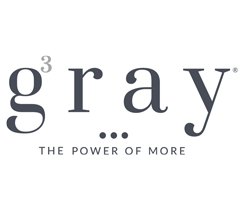PERC OKs propane infrastructure and deliverability study
Fresh off critical supply problems plaguing the Northeast much of this winter, the Propane Education & Research Council (PERC) has agreed to pay consulting firm Purvin and Gertz $155,000 for an in-depth analysis of the U.S. propane industry’s infrastructure and deliverability issues.
The project could answer growing concerns by industry leaders that infrastructure has not kept pace with growth in propane demand. This winter, early seasonal allocation on the Teppco pipeline has not fully kept pace with demand. Marketers in the Northeast have been contracting transports to haul propane as far away as North Carolina and Indiana to secondary storage sites in Pennsylvania and New York. Spot waterborne supplies have been unavailable, and spot rail supply costs have been at record premiums to the Mont Belvieu wholesale price.
The study comes nine years after Purvin and Gertz analyzed domestic supply, storage and logistics concerns in a PERC-funded study. The 2000 study examined infrastructure and logistical issues relating to the pipelines, railcars, trucks and various types of storage. Its recommendation that marketers install more bulk plant “secondary” storage led to industry leadership securing federal tax incentives for those investments.
This time, new emphasis will be put on assessing propane deliverability within various regions throughout the country. Consultants will assess the strain that new home construction, continued consolidation and reduction in secondary storage capacity, reduced rail commitments and conversion of some primary storage to non-propane product storage have had on the domestic supply chain. They will determine if – and where – any potential infrastructure bottlenecks exist and offer solutions to mitigate them.
Some of the key factors to be studied are:
• Primary inventory levels
• Railcar commitments and rolling storage
• Fall fill levels of tertiary storage (customer tanks)
• Imports/exports
• Heating degree days
According to the project’s funding request, the report will enable the propane industry to identify and assess the likelihood of future supply bottlenecks. With that insight, the propane industry can better plan for potential supply shortages and push for new capital projects to expand infrastructure, it says.
A task force within the National Propane Gas Association’s International Committee has been discussing what pieces of the 2000 study should be updated or expanded and what else should be added. Michael Schwartje, who chairs the task force, says the task force will continue to work with the consultants to guide the study’s scope. He says the project will include outreach to independent propane marketers and soliciting input from producers, shippers, pipelines operators and wholesale suppliers.
The study should be completed this summer, followed by a cost/benefit analysis of proposed solutions.
















